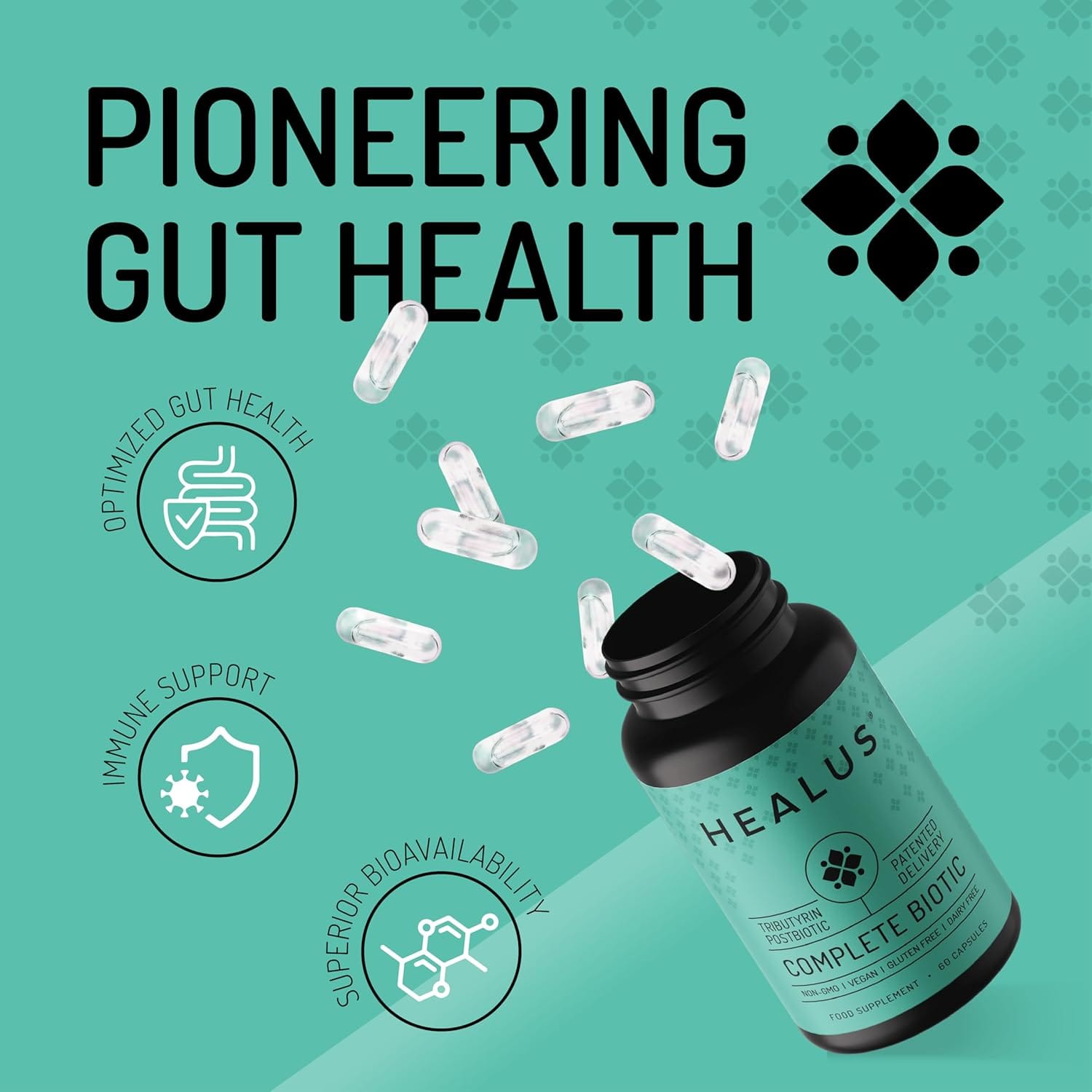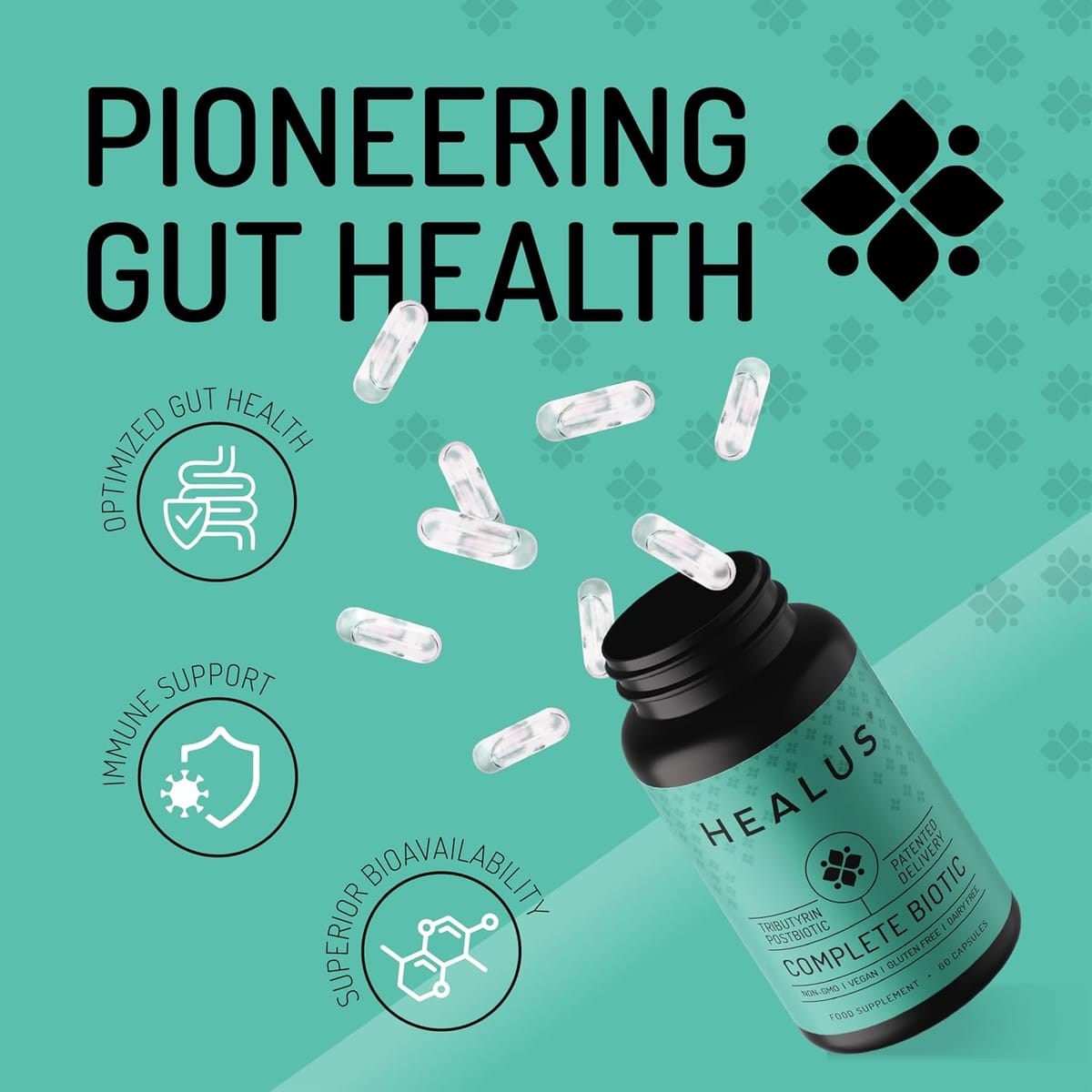Key Takeaways:
- Understanding Postbiotics: Discover what postbiotics are and how they differ from probiotics and prebiotics.
- Health Benefits: Learn about the potential health benefits of incorporating postbiotics into your diet.
- Practical Applications: Explore how to naturally include postbiotics in your daily routine.
Introduction to Postbiotics
In the bustling world of gut health, postbiotics are the new kids on the block. While probiotics and prebiotics have been hogging the limelight, postbiotics are quietly making waves. But what exactly are they? Simply put, postbiotics are the byproducts of probiotic bacteria. When probiotics consume prebiotics, they produce these beneficial compounds. Think of it as the aftermath of a good party—only this time, the leftovers are good for you!
Postbiotics are gaining traction for their potential health benefits. Unlike their probiotic cousins, postbiotics don't require live bacteria to work their magic. This makes them a more stable and reliable option for those looking to boost their gut health without the fuss of keeping bacteria alive.
The Science Behind Postbiotics

The science of postbiotics is as fascinating as a detective novel. When probiotics break down dietary fibers, they produce postbiotics, which include short-chain fatty acids, enzymes, and peptides. These compounds are the unsung heroes of gut health, working behind the scenes to support your body's functions.
Research suggests that postbiotics can help modulate the immune system, reduce inflammation, and even improve gut barrier function. It's like having a team of microscopic superheroes working tirelessly to keep your body in tip-top shape. The beauty of postbiotics lies in their simplicity—they're the natural result of a healthy gut ecosystem.
Postbiotics vs. Probiotics and Prebiotics
In the grand scheme of gut health, probiotics, prebiotics, and postbiotics each play unique roles. Probiotics are live bacteria that confer health benefits, while prebiotics are the fibers that feed these bacteria. Postbiotics, on the other hand, are the beneficial compounds produced by probiotics.
Think of it as a three-course meal: prebiotics are the appetizer, probiotics are the main course, and postbiotics are the delightful dessert. Each has its place, but postbiotics offer a unique advantage—they don't require refrigeration or special handling, making them a convenient option for busy lifestyles.
Health Benefits of Postbiotics

The health benefits of postbiotics are as varied as a box of chocolates. They have been linked to improved digestion, enhanced immune function, and even better skin health. Some studies suggest that postbiotics can help reduce the risk of chronic diseases by modulating inflammation and supporting metabolic health.
For those with sensitive stomachs, postbiotics offer a gentler alternative to probiotics. Since they don't involve live bacteria, there's less risk of digestive upset. It's like having your cake and eating it too—enjoying the benefits of gut health without the potential side effects.
Natural Sources of Postbiotics
Finding natural sources of postbiotics is easier than you might think. Fermented foods like yogurt, kefir, and sauerkraut are rich in postbiotics. These foods undergo a fermentation process where probiotics break down sugars and fibers, producing beneficial postbiotics.
Incorporating these foods into your diet is like adding a splash of color to a monochrome painting. They not only enhance your gut health but also add variety and flavor to your meals. So, next time you're at the grocery store, consider picking up some kimchi or miso to give your gut a natural boost.
How to Incorporate Postbiotics into Your Diet

Incorporating postbiotics into your diet doesn't require a complete overhaul. Start by adding a serving of fermented foods to your daily meals. A spoonful of yogurt with breakfast or a side of sauerkraut with dinner can make a world of difference.
For those who prefer a more structured approach, consider postbiotic supplements. These are available in various forms, including capsules and powders, making it easy to tailor your intake to your lifestyle. It's like having a personal trainer for your gut—guiding you towards optimal health with minimal effort.
Postbiotics and Immune Health
The connection between postbiotics and immune health is as strong as a steel bridge. Postbiotics have been shown to enhance the body's immune response by promoting the production of antibodies and supporting the gut barrier function.
This is particularly beneficial during cold and flu season when your immune system needs all the help it can get. By incorporating postbiotics into your routine, you're giving your body an extra layer of defense against pathogens. It's like having a security system for your immune health—always on guard and ready to protect.
Postbiotics for Digestive Health

Digestive health is the cornerstone of overall well-being, and postbiotics play a crucial role in maintaining it. They help balance the gut microbiota, reduce inflammation, and support the integrity of the gut lining.
For those struggling with digestive issues, postbiotics offer a natural solution. They work quietly behind the scenes, ensuring your digestive system runs smoothly. It's like having a backstage crew at a theater production—essential for the show to go on without a hitch.
Postbiotics and Skin Health
The benefits of postbiotics extend beyond the gut, reaching as far as your skin. Some studies suggest that postbiotics can improve skin health by reducing inflammation and supporting the skin barrier function.
Incorporating postbiotics into your skincare routine is like adding a secret ingredient to a recipe—subtle yet transformative. Whether through diet or topical applications, postbiotics offer a natural way to achieve a healthy, glowing complexion.
Postbiotics for Mental Health

The gut-brain connection is a hot topic in health circles, and postbiotics are part of the conversation. Emerging research suggests that postbiotics can influence mental health by modulating the gut microbiota and reducing inflammation.
For those seeking a natural way to support mental well-being, postbiotics offer a promising avenue. It's like finding a hidden treasure—unexpected yet valuable. By nurturing your gut, you're also nurturing your mind, creating a harmonious balance between the two.
Postbiotics in Infant Nutrition
Postbiotics are not just for adults; they also play a role in infant nutrition. Some infant formulas now include postbiotics to support the developing gut microbiota and immune system.
For parents, this is like having an extra pair of hands—providing peace of mind that their little ones are getting the best start in life. By choosing formulas with postbiotics, you're laying the foundation for a lifetime of good health.
Postbiotics and Weight Management

Weight management is a complex puzzle, and postbiotics may be one of the missing pieces. Some studies suggest that postbiotics can influence metabolism and support healthy weight management by modulating the gut microbiota.
Incorporating postbiotics into your weight management plan is like having a secret weapon—subtle yet effective. By supporting your gut health, you're also supporting your weight goals, making it easier to achieve and maintain a healthy weight.
Postbiotics and Chronic Disease Prevention
The potential of postbiotics in chronic disease prevention is an exciting area of research. By modulating inflammation and supporting metabolic health, postbiotics may help reduce the risk of chronic diseases such as diabetes and cardiovascular disease.
For those looking to take a proactive approach to their health, postbiotics offer a natural solution. It's like having a crystal ball—providing insight into a healthier future. By incorporating postbiotics into your routine, you're investing in long-term health and well-being.
Postbiotics in Animal Health

Postbiotics are not just beneficial for humans; they also play a role in animal health. Some pet foods now include postbiotics to support the gut health and immune function of our furry friends.
For pet owners, this is like having a trusted ally—ensuring their pets are healthy and happy. By choosing pet foods with postbiotics, you're providing your pets with the same benefits you enjoy, creating a harmonious household.
The Future of Postbiotics
The future of postbiotics is as bright as a summer's day. With ongoing research and growing interest, postbiotics are poised to become a staple in health and wellness routines worldwide.
As we continue to learn more about these powerful compounds, the possibilities are endless. It's like opening a new chapter in a book—full of potential and promise. By embracing postbiotics, we're taking a step towards a healthier, more balanced future.

What are postbiotics?
Postbiotics are the beneficial compounds produced by probiotics during the fermentation process. They include short-chain fatty acids, enzymes, and peptides that support various aspects of health.
How can I include postbiotics in my diet?
You can include postbiotics in your diet by consuming fermented foods like yogurt, kefir, and sauerkraut. Alternatively, postbiotic supplements are available for those seeking a more structured approach.
Are postbiotics safe for everyone?
Postbiotics are generally considered safe for most people. However, if you have specific health concerns or conditions, it's always best to consult with a healthcare professional before making significant changes to your diet.

Postbiotics are the unsung heroes of gut health, offering a range of benefits without the need for live bacteria. From supporting immune and digestive health to enhancing skin and mental well-being, postbiotics are a versatile addition to any health routine. By incorporating natural sources of postbiotics into your diet, you're taking a proactive approach to your health, paving the way for a brighter, healthier future.










